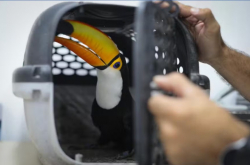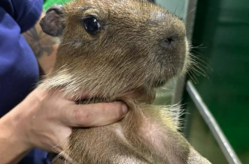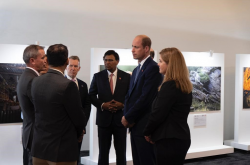Our activities addressing environmental crime are all externally funded and dependent on sustainable partnerships.
Since 1992, INTERPOL’s work on environmental crimes is supported by INTERPOL’s Environmental Crime Working Party, known as the Environmental Compliance and Enforcement Committee and its four specialized crime working groups on wildlife, forestry, fisheries and pollution crimes. Each one of these working groups is comprised by senior law enforcement experts representing INTERPOL’s member counties.
Furthermore, we work in close collaboration with governmental, non-governmental and international organizations to disrupt transnational organized criminal groups involved in environmental crime.
We would particularly like to acknowledge the valuable cooperation from our current and past partners, listed below, and encourage other national, regional and international stakeholders to support our vital work to ensure a safer environment.
Current and past partnerships
Consortium
Countries - Secondments
- Brazil
- China
- Cyprus
- France
- Germany
- Ireland
- Spain
- The Netherlands
- United Arab Emirates
Governmental organizations
- Environment and Climate Change Canada (ECCC)
- The Norwegian Agency for Development Cooperation (Norad)
- Norwegian Ministry of Climate and Environment
- The Norwegian Ministry of Foreign Affairs
- Scottish Environmental Protection Agency (SEPA)
- United Kingdom Department for Environment Food and Rural Affairs (UK DEFRA)
- United States Agency for International Development (USAID)
- United States Department of State - Bureau of International Narcotics and Law Enforcement Affairs (INL)
- United States Forest Service (UFS)
- Germany’s Federal Ministry for the Environment, Climate Action, Nature Conservation and Nuclear Safety (BMUKN)
Inter-governmental organizations and conventions
- Convention on International Trade in Endangered Species of Wild Fauna and Flora (CITES) Secretariat
- Commission for the Conservation of Antarctic Marine Living Resources (CCAMLR)
- European Commission Directorate-General for International Cooperation and Development (DG DEVCO)
- European Commission Directorate-General for Migration and Home Affairs (DG HOME)
- Europol
- Lusaka Agreement Task Force (LATF)
- Secretariat of the Basel Convention
- United Nations Environment Programme (UNEP)
- United Nations Office on Drugs and Crime (UNODC)
- World Bank
- World Customs Organization (WCO)
Non-governmental organizations
- Crime Stoppers International
- Dutch Postcode Lottery
- Global Initiative Against Transnational Organized Crime
- GRID-Arendal
- Hivos
- International Fund for Animal Welfare (IFAW)
- The Pew Charitable Trusts
- World Wildlife Fund (WWF)
and various other national, regional and international non-governmental and intergovernmental organizations as well as civil society and the private sector that through their cooperation they provide us with valuable information and support.








